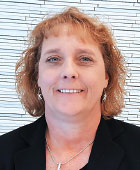Potential Impacts to Your Practice in Post-Pandemic Era
Abstract
The pandemic has brought new stresses to running a successful office practice. Being aware of your practice’s limitations and patient frustrations will reduce liability risks.

The pandemic brought many changes—including uncertainty, upheaval, and stress—which created numerous impacts on mental health. As a result, psychiatrists saw a greater demand for mental health services.
As the pandemic emergency orders come to an end, what can psychiatrists expect next? With the pandemic came an increase in the need for mental health services due to depression/suicidal ideation, increased use of drugs and alcohol, anxiety, isolation, and more. As a result, a strain has been placed on the mental health system, stretching an already overextended system. The use of telemedicine helped providers reach more patients, but resources are still limited.
If not already, psychiatrists should be using a HIPAA-compliant video platform and have a Business Associate Agreement with the vendor of the telemedicine services. Audio-only services should be limited, especially if prescribing controlled substances. Psychiatrists should keep up to date with state and federal regulations related to telemedicine.
During the pandemic, the Drug Enforcement Administration allowed physicians to prescribe controlled substances when seeing a patient through an audiovisual, real-time, two-way interactive communication system without an in-person medical evaluation. Psychiatrists should expect the requirements under the Ryan Haight Act to return.
It is important to be mindful of the true capabilities of an office practice. Taking on too much can result in undue stress to physicians and their practice. The potential to overlook routine matters can increase the likelihood of unintended errors. Understanding the limitations of a successful office practice is important to avoid increased potential liability.
Another consideration is practicing within your area of expertise. Sometimes a physician needs to make the difficult decision to refer patients to another health care professional. Perhaps a telemedicine patient would be more suited for in-person care, but the practice has limited in-person appointments. Some patients may need more intensive care than can be provided in your office setting. Preparing patients for transfer to other professionals can go a long way in decreasing patients’ stress. It also reduces the likelihood that patients will become disgruntled, perhaps leading them to file a complaint.
Create written office policies you expect patients to follow and have them sign off so there are no “surprises” later. Setting expectations with patients is imperative when managing a successful office practice.
With the onset of the pandemic, the mental well-being of children and young adults also deteriorated. It is important for psychiatrists to collaborate with these patients’ other treating professionals, as they may have additional information to support treatment plans. Teaching children how to cope with their emotions is essential, along with educating them on when and how to seek help. Creating a supportive environment in the family, school, and community structures helps provide a multidisciplinary support system.
Over the past several years, physicians reported experiencing an increase in patient complaints, requests for information and medical records, and subpoenaed- and court-ordered information. As socioeconomic changes have affected all aspects of people’s lives, people have generally become stressed and frustrated. As a result, patients may be more inclined to threaten a licensing board complaint or malpractice action.
Consult your risk management professional and practice attorney when questions or issues arise and remember: Utilizing good risk management techniques decreases poor outcomes, improves patient satisfaction, decreases the chance of medical malpractice claims, and increases your chances for a successful defense.
This information is provided as a risk management resource for Allied World policyholders and should not be construed as legal or clinical advice. This material may not be reproduced or distributed without the express, written permission of Allied World Assurance Company Holdings Ltd., a Fairfax company (“Allied World”). Risk management services are provided by or arranged through AWAC Services Company, a member company of Allied World. © 2023 Allied World Assurance Company Holdings, Ltd. All Rights Reserved. ■
This information is provided as a risk management resource for Allied World policyholders and should not be construed as legal or clinical advice. This material may not be reproduced or distributed without the express, written permission of Allied World Assurance Company Holdings Ltd, a Fairfax company (“Allied World”). Risk management services are provided by or arranged through AWAC Services Company, a member company of Allied World. © 2022 Allied World Assurance Company Holdings Ltd. All Rights Reserved.




